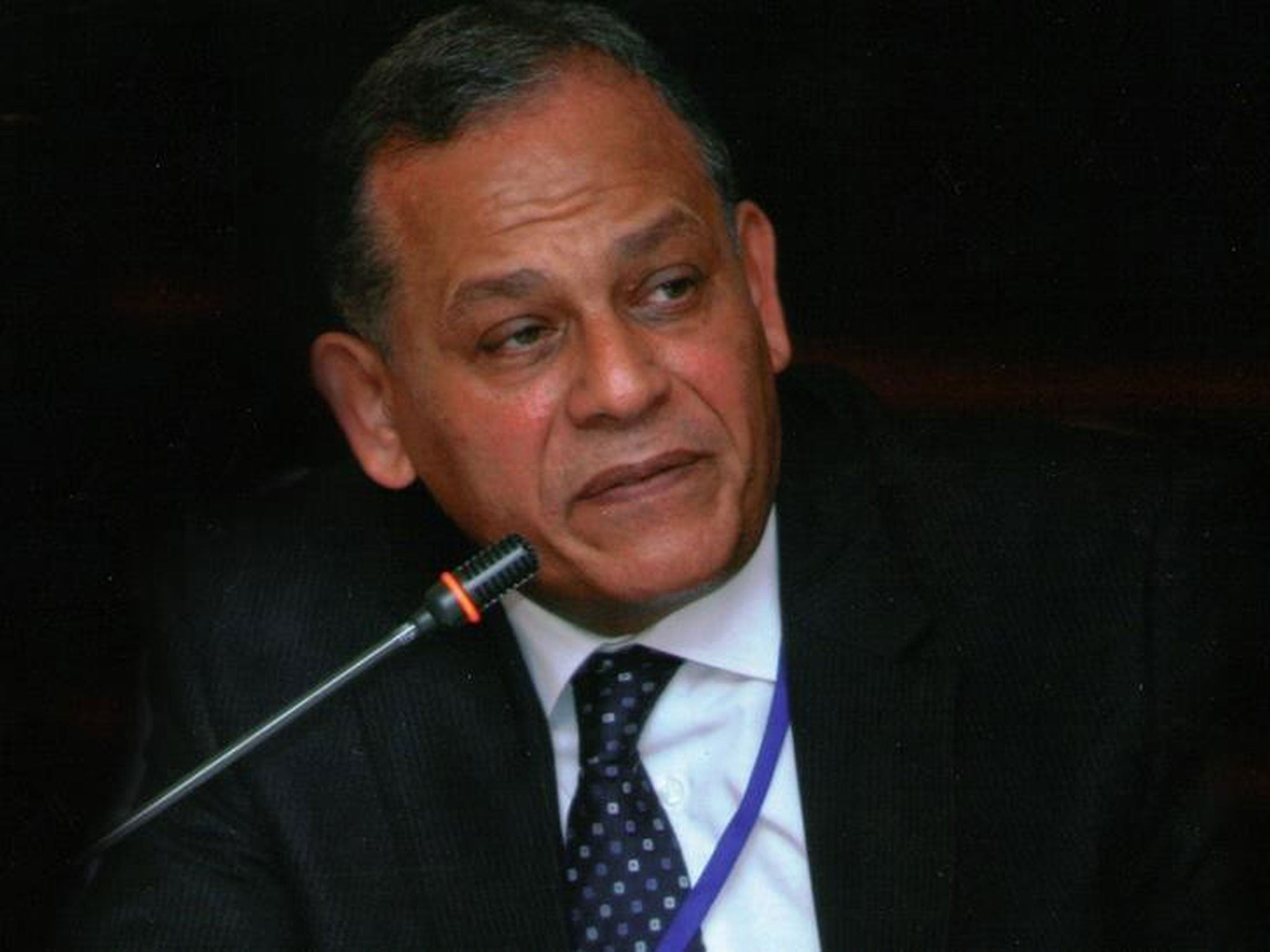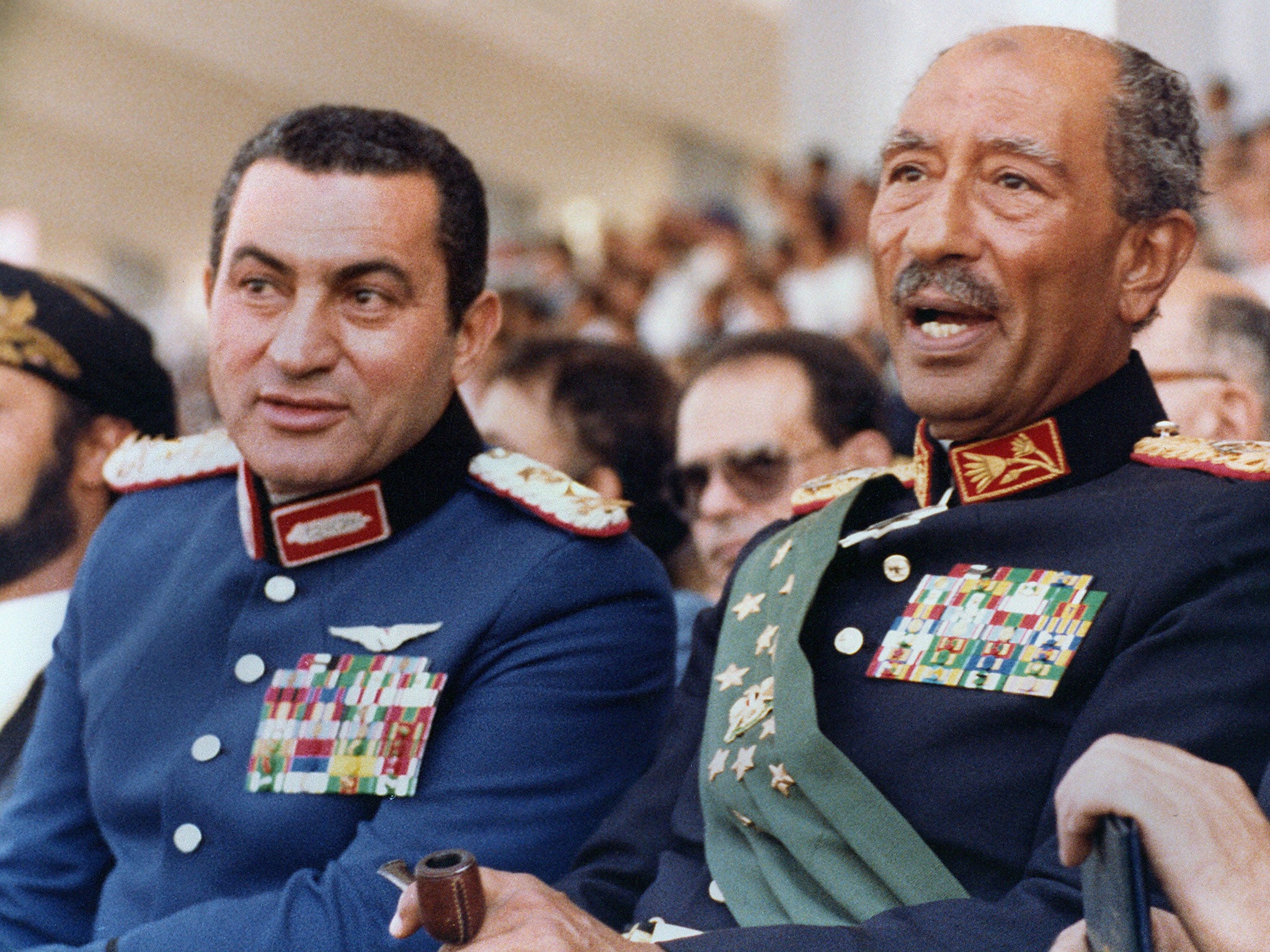'People think they made a big mistake, electing Morsi...they hate the Brotherhood'
Anwar Sadat, nephew of the assassinated president, talks to Robert Fisk about a ‘savage’ Egypt – and why it needs help

Your support helps us to tell the story
From reproductive rights to climate change to Big Tech, The Independent is on the ground when the story is developing. Whether it's investigating the financials of Elon Musk's pro-Trump PAC or producing our latest documentary, 'The A Word', which shines a light on the American women fighting for reproductive rights, we know how important it is to parse out the facts from the messaging.
At such a critical moment in US history, we need reporters on the ground. Your donation allows us to keep sending journalists to speak to both sides of the story.
The Independent is trusted by Americans across the entire political spectrum. And unlike many other quality news outlets, we choose not to lock Americans out of our reporting and analysis with paywalls. We believe quality journalism should be available to everyone, paid for by those who can afford it.
Your support makes all the difference.It’s not every day you get to ask Anwar Sadat about the fall of Mohamed Morsi.
But the nephew of the Egyptian president assassinated by Islamists in 1981 – who does, by the way, look rather like his late uncle as well as sharing his name – is an eloquent, tolerant member of the old Egyptian parliament, a 52-year-old head of an NGO who was just leaving his Heliopolis office on grim business: to pay his condolences to the families of 22 of the 26 police cadets murdered in Sinai this week. All 22 were his constituents.
But, Anwar Sadat says, Morsi had to go. Had he remained in power for another year, “we would have had another hundred years of the Brotherhood in power”. Yet the problem now, he says, is that Egypt needs a political solution. “The security solution is only something temporary. The people are just saying ‘these are terrorists’ about the Brotherhood and are putting pressure on the government. The media are all in one direction and this does not help. This makes life difficult for people who want to come up with compromise and flexibility. In Egypt, we have to learn to live together. People are going crazy about these people in the Brotherhood….”
And then Anwar Sadat, the president of the tiny Reform and Development Party – right-of-centre, if you can use that expression in Egyptian politics – says something very unexpected. “Real democracy in this part of the world doesn’t really fit. We need awareness, education, to make people understand all our values. We Egyptians talk of all this civilisation we have had for 7,000 years. But we have buried all that our fathers did. We cannot even come to an understanding of what we really want.”
But there are other unexpected moments. It was the first time I had heard, for example, that the uncle of General Abdel-Fattah al-Sisi – the man who chucked Morsi and the Brotherhood from power last month – was himself in the Brotherhood in the 1950s and spent time in Nasser’s jails. Indeed, that same uncle was a close colleague of Mohamed Badie, the world leader of the Brotherhood whom General Sisi has just locked up.
“Sisi was willing to go on if the Muslim Brotherhood and their allies would show compromise. You know, he was under severe public pressure. Sisi was never close to the Brotherhood but he is conservative, like most officers. They pray. This is the moderate Islam that we all follow. But we have to accept that these people [the Brotherhood] are a big segment of society. This is a reality. We must show compromise. But we were all lucky that the army managed to isolate Suez and Sinai – otherwise all those terrorists there would have come to Cairo and there would have been much more blood.”
Anwar Sadat was in his early twenties and on the first day of his honeymoon when his uncle was shot by Lieutenant Khaled al-Islambouly.

“I was on the plane going to Germany and I checked into our hotel in Munich and the manager came to see me – he was almost in tears and said he had “terrible news” – and then the embassy called and I was back in Cairo by the evening. The Brotherhood respected President Sadat. The Brotherhood gave our family a medal only two months ago. They believed he was not Nasser and not Mubarak, that there was no torture then and that President Sadat had a certain tolerance and gave them a chance to reactivate their activities – as long as they followed the rules. At that time, the leftists and the Nasserists were very much against the peace treaty with Israel.”
Over the past two and a half years, Anwar Sadat got to know Morsi. “He is a good-hearted man – not a genius, but a good man. But it was the [Brotherhood] group who were controlling the whole show. He was representing them in the presidency, not all Egyptians. The problem was that they were a big failure, they lacked experience of how to deal with the opposition, they excluded the youngsters of the 2011 revolution.”
And Hosni Mubarak, the 85-year-old president deposed 30 months before Morsi’s overthrow? Should he be freed? Anwar Sadat will abide by the ruling of the judiciary. “Mubarak, in his first 10 years, was trying hard and he was very sincere – but later on, when his sons and wife became part of his political life, he started to give up a lot of his responsibilities and leave them to his wife and sons. There were conflicts of interest and businessmen were around his son Gamal. Mubarak himself was not very fond of the idea of having his son replace him. It was Gamal’s friends and business people who kept saying ‘you are the best’, ‘you are the next man’. Mubarak knew the military would fight back against this. Tantawi [who ultimately brought Mubarak down] was tired of all these business transactions.”
Mubarak was “a human, a fighter, he was dealing with peace, with stability, but he didn’t realise that things had changed, that his government should open up and have flexibility. In this way Mubarak and Morsi made the same mistake. But one more year and we would never have had a chance to get rid of Morsi and we would have had them for the next hundred years. Political Islam – I can’t see it would work again unless the strategy changed.
“You have to understand that the war here is not between the people and the army or the people and the police. It is with the people. People hate the Brotherhood nowadays – they think they made a big mistake by electing Morsi. Mubarak was in power for 30 years. The people were against him but he had the deep state and the institutions on his side. Morsi had the people against him and the deep state and the institutions against him.
“As for us Egyptians, from our friends abroad we need solutions that will help us, not threats. And we as a society have to look into what happened to us. We became very savage, even to our friends.”
Morsi rallies stay low-key
Supporters of the ousted Egyptian President Mohamed Morsi took to the streets of Cairo today, holding scattered rallies in a test of whether they can keep up the pressure on the government despite the arrest of much of their senior leadership.
Unlike the protests seen in recent weeks, Morsi supporters kept to smaller streets, avoiding major thoroughfares and squares where military and security forces were deployed in strength. The rallies came a day after 80 Muslim Brotherhood members, including senior leaders, were taken into custody.
Join our commenting forum
Join thought-provoking conversations, follow other Independent readers and see their replies
Comments